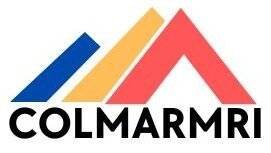Qualifying Social Security recipients might get an additional direct deposit up to $2,967 in 2024. Therefore, it becomes important if your main income comes from Social Security or from other sources.
Let’s examine closely eligibility conditions, the claim process, and what you need to do to guarantee that income boost.
Why This Matters
An extra $2,967 would really help retirees or people on a limited income with growing housing, healthcare, and living expenditures.
also_read id=”3565″
This additional deposit is part of the system’s attempt to guarantee that recipients’ purchasing power keeps pace with inflation; it would match the SSA’s cost-of-living adjustments.
Quick Overview

| Aspect | Details |
|---|---|
| Extra Direct Deposit | Up to $2,967 potentially available in 2024 |
| Eligibility | U.S. citizens or legal residents over 62 years old |
| Application Method | Online or via local SSA offices |
| Timeline | Payment included in regular benefit deposits |
What Is the Extra $2,967 Payment?
There could be other sources for this additional money:
- COLA, or cost-of- living adjustments, are a regular annual boost meant to help recipients control inflation.
- Sometimes recipients may get a one-time adjustment depending on particular eligibility criteria.
The exact distribution method for the $2,967 has not been finalized, but tracking updates from the SSA will help clarify your eligibility and steps to claim it.
Eligibility for the Extra Payment
To be eligible for receiving Social Security benefits, which also encompasses the additional payment, you must meet the following conditions:

Age and Residency
- You must be at least 62 years of age for retirement or younger for disability.
- Be a U.S. citizen or legal resident.’
Work History
- Have at least 10 years of work history (40 credits).
- Contributed to Social Security through payroll taxes.
Full Retirement Age (FRA)
- The $2,967 amount typically applies to those reaching full retirement age (66-67 years), as they qualify for maximum benefits.
How to Claim the Extra $2,967
Use these guidelines to guarantee you not miss anything:
1. Check Your Eligibility
Use the official SSA tools to find out whether you qualify for Social Security benefits.
2. Gather Required Documents
You will need:
- Social Security Numbers
- Age proof—a birth certificate or a passport
- Work history documentation
- Banking information for a direct deposit
also_read id=”3544″
3. Apply for Benefits
- Online: Finish your application by log-into your My Social Security account.
- Visit your local SSA office in-person.
4. Confirm Your Benefit Amount
Applying COLA adjustments for 2024, the SSA computes your benefit depending on your highest 35 years of income after application.
5. Monitor Payments
Track deposits through the My Social Security webpage or your bank account. Those qualified should see the additional money added automatically.
Factors Affecting the Payment

Your received amount will rely on:
- Earnings Record: Your base benefit is impacted by your highest 35 years of earning.
- COLA: The change addresses inflation and could greatly increase benefits for 2024.
- Delaying benefits until age 70 could raise monthly payouts by up to 8% annually.
Read More :- SSDI Payment Today: Up to $1,542 for Those Born Between These Dates – Find Out If You Qualify!
Why You Need to Act
Ignoring this extra deposit could mean letting go of much-needed financial support right on hand. Act early to prove your eligibility and get your benefits, therefore guaranteeing your financial stability in 2024.
FAQs:
What is the $2,967 Social Security contribution?
It is an extra claim for qualifying Social Security beneficiaries with specific requirements in place for 2024.
Who gets the supplementary Social Security contribution?
Eligible US citizens, particularly retirees or the disabled, who meet the age, income, and benefit eligibility criteria.
How can I determine if I qualify?
You can find out by checking your Social Security statement online or contacting the SSA for detailed eligibility criteria.
Is the extra pay taxable?
Social Security benefits, such as extra payments, can be taxed depending on your total income.

